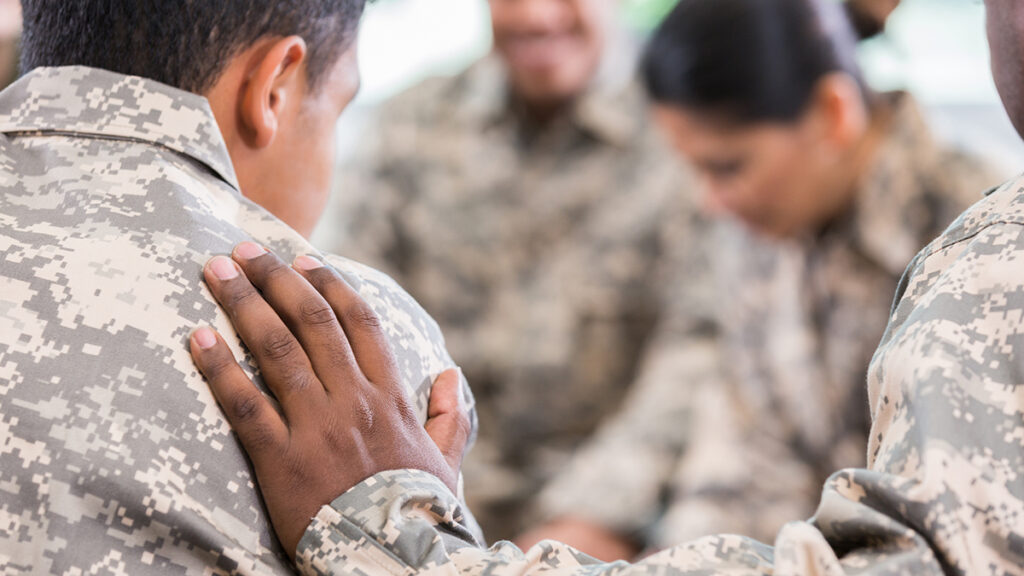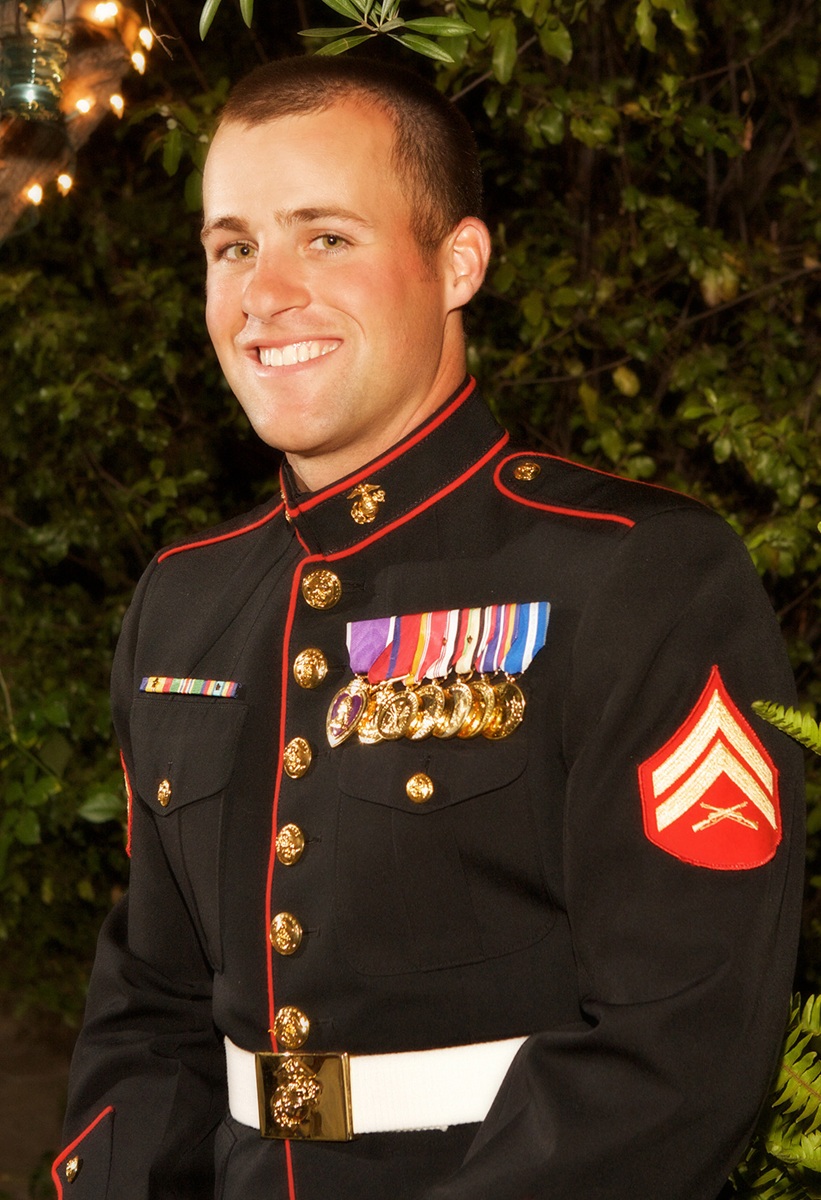Written by Justun Dorsey, Education and Outreach Coordinator

Each September, our nation observes National Suicide Prevention Month to raise awareness about the impact of suicide and the importance of mental health. During this time, communities come together to share resources, offer support, and encourage conversations that can help save lives. While suicide touches every community, the experiences of military service members, both during and after, can bring unique challenges that place veterans and active-duty service members at higher risk.
According to the 2024 National Veteran Suicide Prevention Annual Report, which includes data through 2022, an average of 17.6 veterans die by suicide each day. Experts warn that the real number may be even higher due to underreporting. The statistics are especially concerning for veterans between the ages 18 to 34, whose suicide rate is nearly 45 per 100,000. This is significantly higher than the civilian average. Many active-duty service members also continue to struggle. In 2023, 523 military suicides were reported, including 363 among those currently serving. Since September 11, 2001, there have been more than 30,000 veterans’ and active-duty service members’ lives lost through suicide, tragically outnumbering combat deaths by almost four to one. These figures highlight the urgent need for early intervention, accessible mental health care, and strong community support to ensure that those who serve receive the help they need long before reaching their breaking point. One powerful example of this crisis is the story of Sergeant Clay Hunt.
Sergeant Clay Hunt was a veteran of the United States Marine Corps (USMC) whose story has become symbolic of the fight against veteran suicide. A native of Houston, Texas, Clay was deployed to Iraq and Afghanistan where he experienced the harsh realities of combat and later struggled with post-traumatic stress (PTS). After separating from military service, he turned his pain into purpose, working with organizations like Team Rubicon and Iraq and Afghanistan Veterans of America to support his fellow veterans and advocate for stronger mental health resources. Despite his advocacy and his commitment to others, Clay continued to battle his own invisible wounds. In 2011, at the age of 28, he died by suicide. His death was a devastating loss, but it also became a catalyst for change, sparking a nationwide call to reform how the United States cares for veterans’ mental health.
That call led to the Clay Hunt Suicide Prevention for American Veterans (SAV) Act, signed into law in 2015. The act requires the VA to undergo independent evaluations of its mental health and suicide prevention programs each year, improves transparency and accessibility by centralizing mental health resources online, and fosters partnerships with community organizations to extend the reach of support services. It also created loan repayment incentives to recruit more mental health professionals to VA facilities, addressing the shortages that too often delay treatment. While it is not the only bill put forth to prevent these tragedies and help those suffering, it is more than a policy change. The Clay Hunt Act represents national recognition that the country must do better for veterans carrying the unseen scars of service. By expanding access to care and holding the system accountable, the act has helped ensure that no veteran is left behind or forgotten.
Clay’s story is a sobering reminder of what is at stake and shows that change is possible when we act with urgency and compassion. Preventing suicide requires everyone to take a stand. We can each play a role by breaking the stigma, raising awareness, and making sure people know that help is always within reach.

If you or someone you love is a veteran in crisis, support is available 24/7. Call the Veterans Crisis Line by dialing 988 and pressing 1, or text 838255 to connect with someone who understands. If you are not a veteran, but are still in need of assistance, call the Suicide and Crisis Lifeline at 988. Sharing these resources, checking in with the veterans in your life, and supporting organizations that prioritize mental health can make a life-saving difference. Together, we can honor Clay Hunt’s legacy, and many others, by working toward a future where no veteran feels they must fight their battles alone.
References:
Photos:
(First) Photo courtesy of the CDC Foundation (Veteran Suicide Prevention: Evaluation Demonstration (VSPE) Project)) and the CDC’s National Center for Injury Prevention and Control.
(Second) Photo courtesy of Military Justice for All
988 Lifeline, 988lifeline.org/.
Administrator. “Clay Hunt Suicide Prevention for American Veterans Act.” MILITARY JUSTICE FOR ALL, 8 Sept. 2019, militaryjusticeforall.com/tag/clay-hunt-suicide-prevention-for-american-veterans-act/.
Administrator. “Marine Veteran & PTSD Advocate Clay Hunt Died by Suicide in Texas Home; Death Prompted the Passage of the Clay Hunt SAV Act (March 31, 2011).” MILITARY JUSTICE FOR ALL, 11 Sept. 2019, militaryjusticeforall.com/2011/03/31/clay-hunt-marine-corps-march-2011/.
“Annual Report on Suicide in the Military.” Army Resilience, www.armyresilience.army.mil/ard/images/pdf/ARSM_CY23_final_508c.pdf.
Bare, Stacy. “The Truth About 22 Veteran Suicides a Day.” Task & Purpose, 2 June 2015, taskandpurpose.com/military-life/truth-22-veteran-suicides-day/.
“Bipartisan Veterans Suicide Prevention Act Passes House.” House Committee on Veterans Affairs, 12 Jan. 2015, veterans.house.gov/news/documentsingle.aspx?DocumentID=705.
“H.R.203 – Clay Hunt SAV Act.” Congress.Gov, https://www.congress.gov/bill/114th-congress/house-bill/203/text. Accessed 26 Aug. 2025.
“Mental Health: Suicide Prevention.” U.S. Department of Veterans Affairs, 14 Sept. 2018, www.mentalhealth.va.gov/suicide_prevention/data.asp.
Smith, Dave. “Remembering Clay Hunt: The Marine, Advocate, and Friend.” Task & Purpose, 31 Mar. 2016, taskandpurpose.com/news/remembering-clay-hunt-marine-advocate-friend/.
“The State of Veteran Suicide (2025 Update).” Mission Roll Call, 1 July 2025, missionrollcall.org/veteran-voices/articles/the-state-of-veteran-suicide/.



